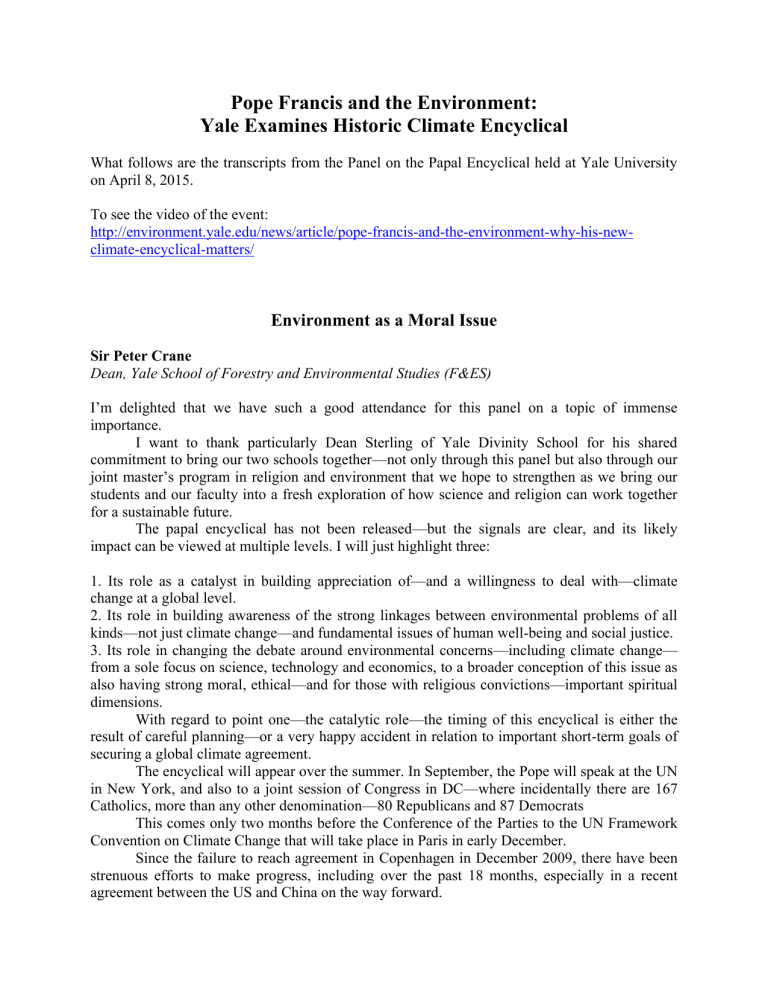Pope Francis' Encyclical on the Environment: A Call to Action for a Sustainable Future represents one of the most significant contributions to global environmental discourse in recent history. This document, which addresses the urgent need for ecological stewardship, transcends religious boundaries and speaks directly to humanity's shared responsibility toward the planet. It challenges individuals, communities, and nations to rethink their relationship with nature and adopt sustainable practices that honor both creation and future generations.
Through his teachings, Pope Francis emphasizes the interconnectedness of all life forms and calls for a holistic approach to addressing climate change. His message is rooted in compassion, urging people to recognize the moral imperative behind protecting the environment. By framing ecological concerns within a spiritual context, the encyclical inspires action grounded in values such as justice, solidarity, and respect for human dignity. As we face mounting environmental crises, this call to action serves as both a guide and a reminder of our collective duty to safeguard the Earth.
Pope Francis Releases New Encyclical On Climate: Laudate Deum
In October, Pope Francis unveiled Laudate Deum, an apostolic exhortation expanding upon themes introduced in his landmark 2015 encyclical, Laudato Si'. This latest document underscores the urgency of responding to the climate crisis while highlighting humanity's proximity to irreversible environmental damage. The Pope warns that insufficient action threatens not only ecosystems but also social equity and intergenerational justice. He implores governments, businesses, and citizens alike to accelerate efforts toward decarbonization and ecological restoration.
Laudate Deum builds on the foundational principles established in Laudato Si', emphasizing the intrinsic link between ecological degradation and systemic poverty. By reiterating the importance of integral ecology—a framework integrating environmental, economic, and social dimensions—the encyclical advocates for transformative policies capable of fostering harmony between humanity and nature. Furthermore, it encourages grassroots initiatives led by local communities who are often disproportionately affected by climate impacts yet possess valuable knowledge for resilient solutions.
The encyclical also reflects on the ethical responsibilities inherent in technological advancements, calling for responsible innovation aligned with ecological priorities. In doing so, Pope Francis reaffirms the Church's commitment to promoting sustainable development models that prioritize long-term well-being over short-term gains. Through these reflections, he invites individuals across diverse backgrounds to engage in meaningful dialogue about how best to address the pressing challenges facing our planet today.
A Personal Journey Inspired By Pope Francis’ Encyclical
For many, Pope Francis' encyclical on the environment has served as a catalyst for profound personal transformation. One individual recounts their journey from skepticism to conviction after encountering the teachings of Laudato Si' during college. Studying physics and religious studies at a public institution, they found themselves uniquely positioned to appreciate the scientific underpinnings and theological depth embedded within the document. What resonated most was its critique of throwaway culture, which perpetuates wastefulness and indifference toward vulnerable populations.
This revelation prompted a deeper exploration of faith and activism, ultimately leading to conversion to Catholicism. The encyclical provided a compelling framework for understanding humanity's role as stewards of creation, reinforcing the belief that every life holds inherent value in God's eyes. Such insights motivated them to integrate environmental advocacy into daily practice, whether through reducing personal carbon footprints or participating in community projects aimed at mitigating climate effects.
Beyond personal growth, the encyclical fostered connections with like-minded peers committed to advancing ecological justice. Together, they formed study groups, organized awareness campaigns, and collaborated on initiatives promoting sustainability on campus. These experiences underscored the power of collective action inspired by shared values and reinforced the potential impact of grassroots movements driven by faith-based convictions.
Global Recognition Of Laudato Si': A Turning Point For Environmental Advocacy
Since its publication in 2015, Laudato Si' has garnered widespread acclaim as a seminal work addressing environmental issues from a moral perspective. Vatican News highlights its significance as a radical call to reconsider humanity's relationship with nature, challenging conventional paradigms that prioritize profit over preservation. Scholars and activists alike praise the encyclical for bridging gaps between science and spirituality, offering a comprehensive vision for achieving ecological balance.
Central to its appeal is the concept of integral ecology, which recognizes the interdependence of ecological, social, and economic systems. By advocating for inclusive approaches that address root causes of environmental degradation, the encyclical aligns closely with United Nations Sustainable Development Goals. Moreover, it emphasizes the need for cross-sector collaboration involving governments, corporations, academia, and civil society to implement effective strategies combating climate change.
As discussions around climate justice continue gaining momentum worldwide, Laudato Si' remains a touchstone for those striving to create a more equitable and sustainable world. Its enduring relevance lies in its ability to inspire hope amidst daunting challenges, reminding us that even small actions contribute significantly when guided by principles of care and compassion. Through continued engagement with its teachings, individuals and institutions can play pivotal roles in shaping a brighter future for generations to come.

